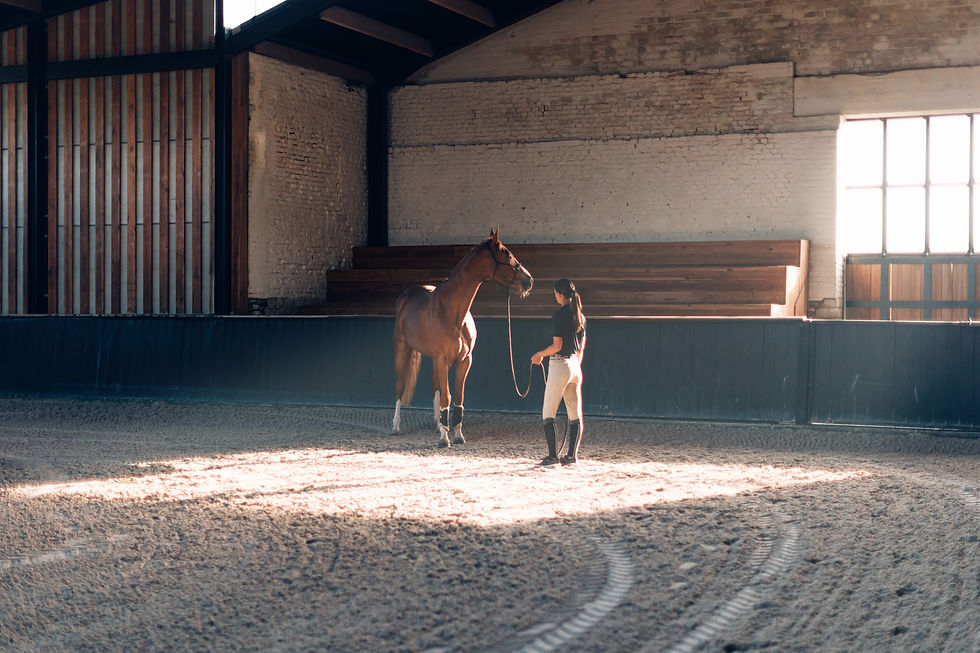Playing the Game: Client Relation Tips for Trainers
- Entrigue Consulting

- Sep 7, 2018
- 2 min read
Updated: Jul 22, 2025
It’s important for trainers to understand that running their own training business is just that--a business. At the end of the day, successful business owners know that client relations are at the heart of all horse-related business relationships.
You make money by providing value- and with that said owning a horse or taking riding lessons is considered a leisurely expense to your clients, much like a vacation or gym membership.
It’s important for trainers to remember that clients are consumers. In a free market, they can decide who they wish to spend their money with. Customer service matters in horse sports just as much as any other business and bad experiences can lead consumers to leave the horse world altogether.
Here are some tips for trainers to keep in mind when dealing with clients:
Train The Horse, Coach The Rider
Clients pay you because they are unable to do your job. That could be from training their green 3-year-old to wrapping polos and everything in between. Teach your clients, young and old, how to improve their overall horsemanship skills. A good trainer teaches the horse. A great trainer teaches the horse and the owner in a meaningful way.
The same way a personal trainer might push a client, you may have to push your riders--but there’s a difference between a supportive push and belittling a client or making them feel incompetent. Your relationship as a coach or instructor should always be constructive.
Loop the Loop: Communicate
Keeping your clients “in the loop” is important to avoid miscommunication--which causes a whole slew of problems. Owners want to know what you’re doing with their horse and how things are going. Imagine leaving your child at a summer camp--you want to know your child is in good hands and being cared for.
To many horse owners these animals are another member of the family--don’t treat them like a number even if you have 25 to worry about. Be honest with your clients and let them know when something is wrong or if an injury arises (even small) so they can feel confident you are giving their horse the attention it deserves.
May I Have Your John Hancock?
Having contracts and transparent financial expectations gives the client in writing their bang-for-their-buck. For many clients, horse expenses take up a large amount of their income and clearly outlining costs can help your clients budget better (to take advantage of more of your services) and help avoid conflicts later.
Get in touch with us today to learn more!




Comments